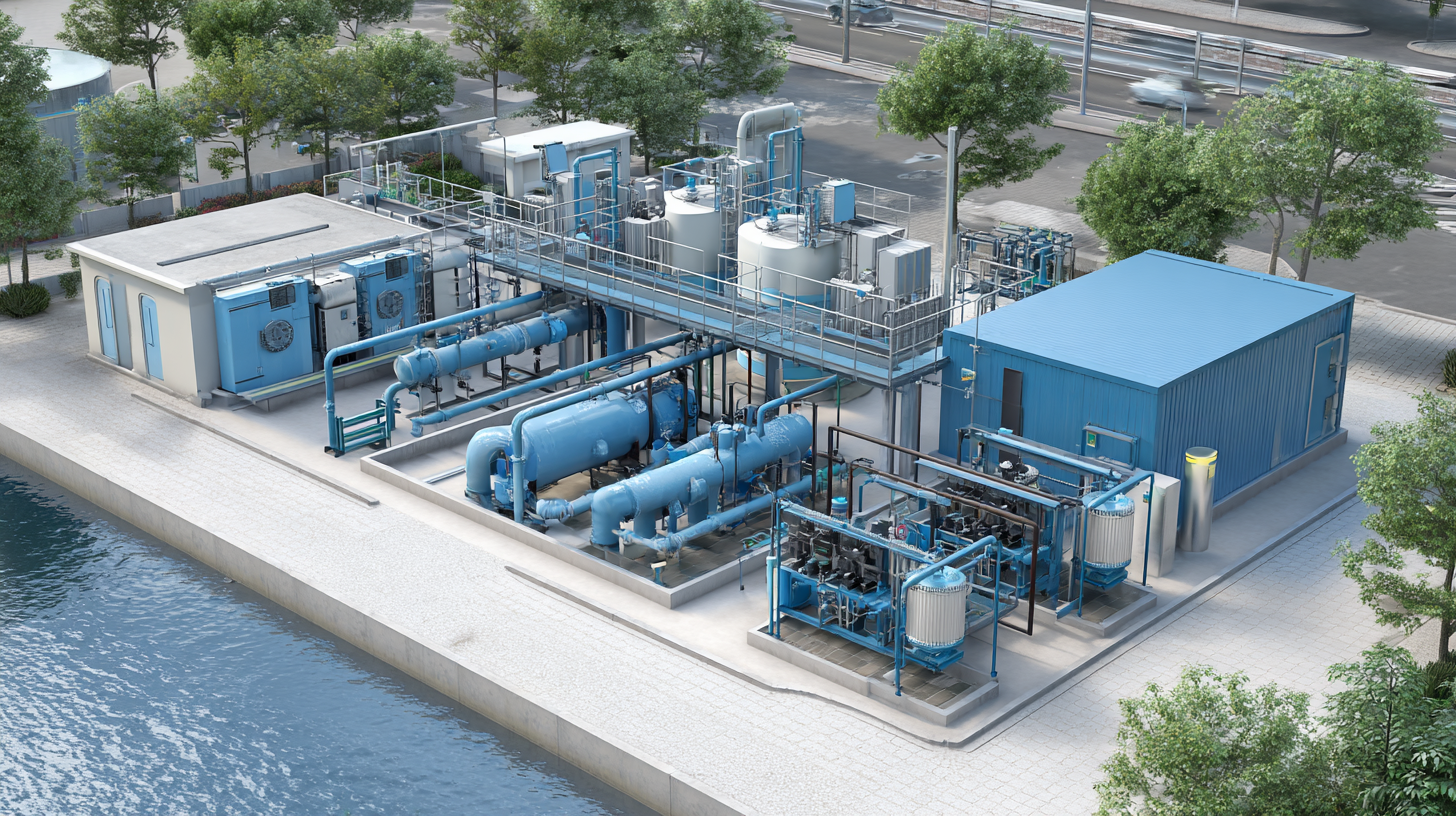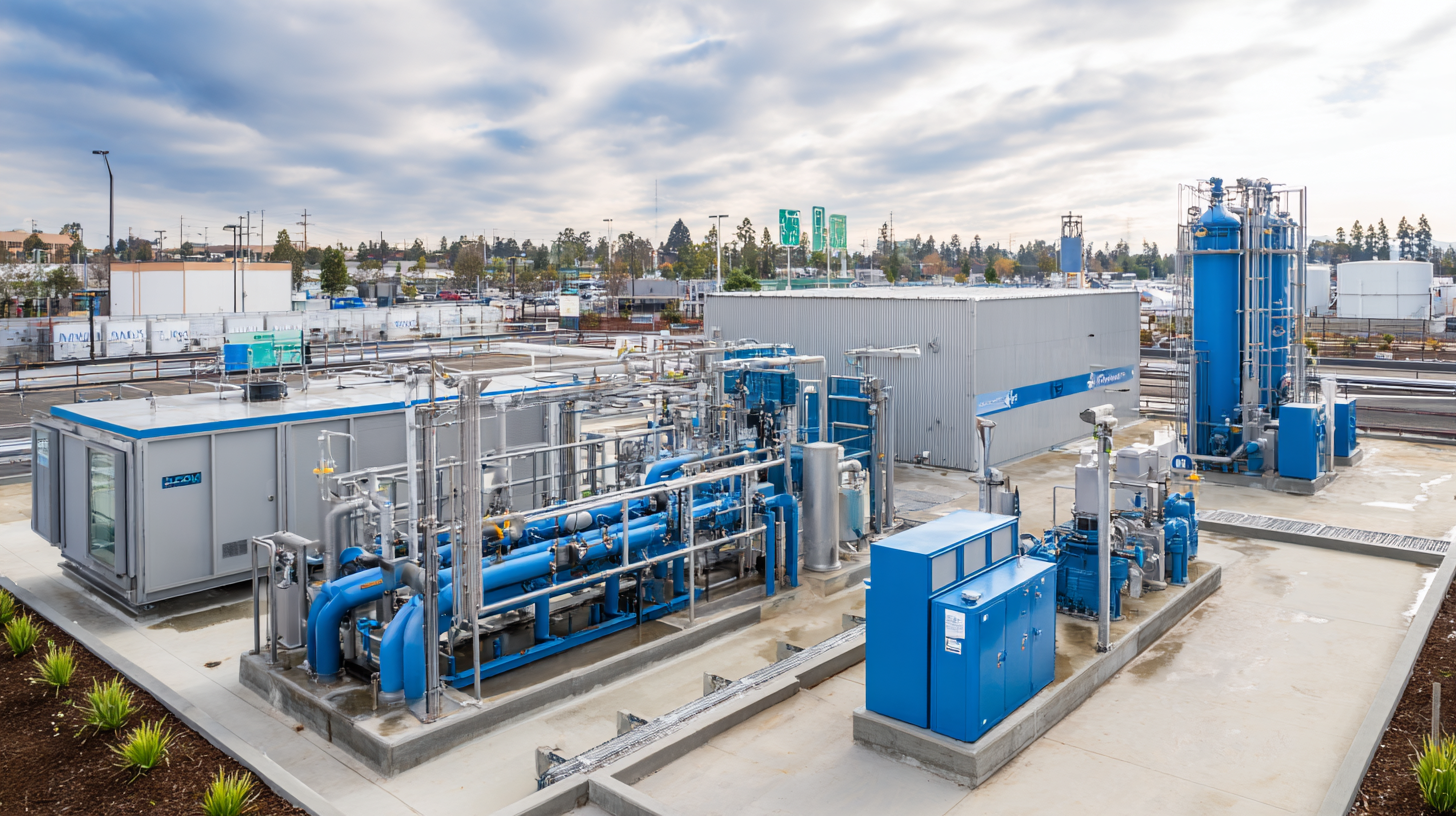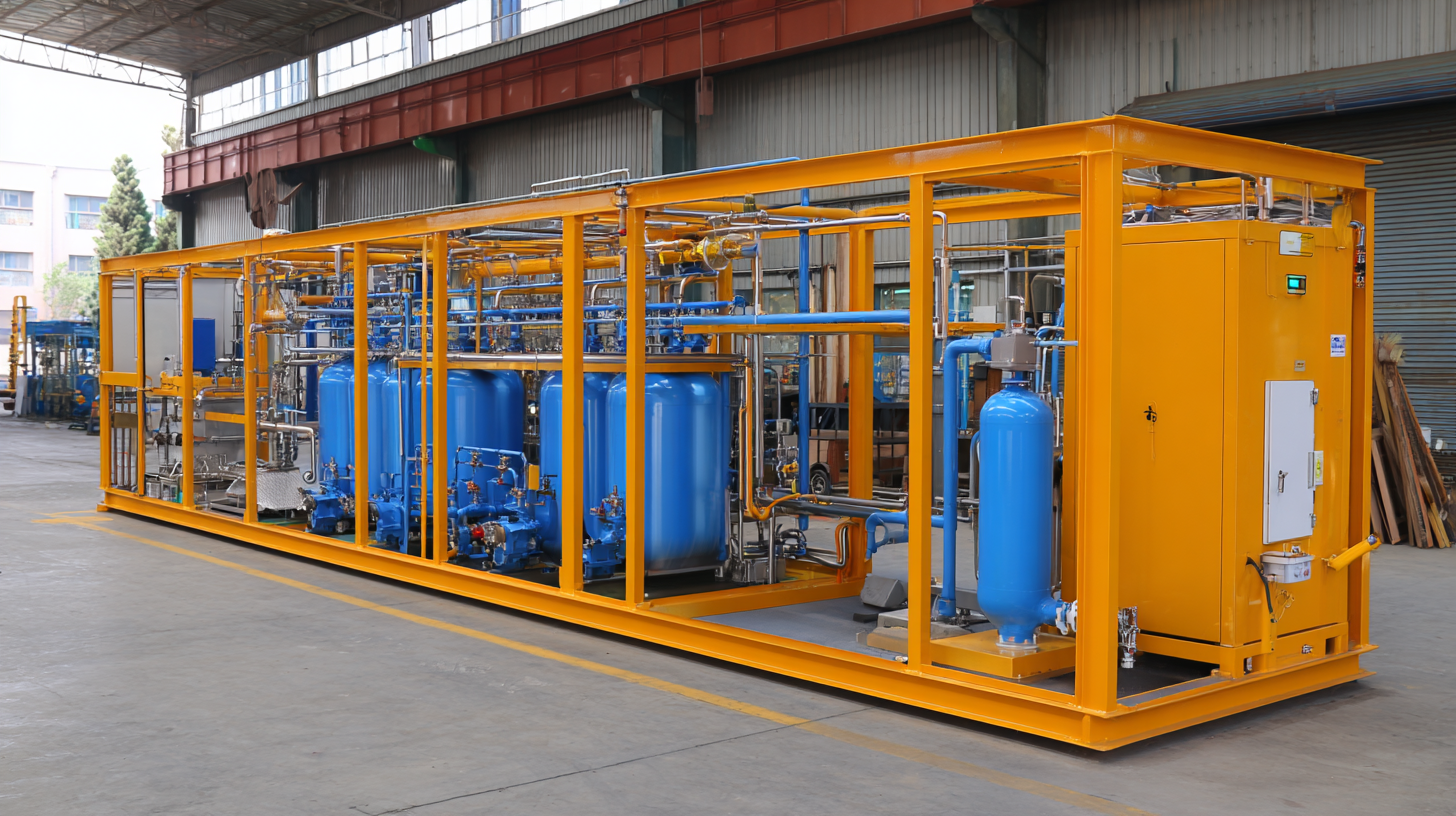Revolutionizing Urban Sustainability with Advanced Waste Water Treatment Equipment Solutions
As urban populations continue to swell, the pressure on infrastructure has never been greater, making sustainable practices critical for modern cities. According to a recent report by the United Nations, urban areas are expected to house 68% of the world's population by 2050, driving the demand for innovative solutions in urban sustainability. A key component in this equation is the efficiency of waste water treatment equipment, which plays a vital role in managing water resources, reducing pollution, and enhancing public health. Recent advancements in technologies, such as membrane bioreactors and advanced oxidation processes, have demonstrated the potential to increase efficiency in waste water treatment, significantly reducing operational costs and environmental impact. By investing in sophisticated waste water treatment equipment, cities not only comply with stricter regulations but also promote a healthier urban environment, setting a robust foundation for sustainable growth.

Identifying the Key Benefits of Advanced Waste Water Treatment Equipment for Urban Settings
 Advanced wastewater treatment equipment plays a crucial role in enhancing urban sustainability by effectively managing water resources, reducing pollution, and promoting the recycling of water. According to the World Health Organization (WHO), over 80% of wastewater generated globally is released into the environment without adequate treatment, which poses significant risks to public health and ecosystems. By investing in modern treatment technologies such as membrane bioreactors and advanced oxidation processes, urban areas can significantly improve their water quality and ensure compliance with environmental regulations.
Advanced wastewater treatment equipment plays a crucial role in enhancing urban sustainability by effectively managing water resources, reducing pollution, and promoting the recycling of water. According to the World Health Organization (WHO), over 80% of wastewater generated globally is released into the environment without adequate treatment, which poses significant risks to public health and ecosystems. By investing in modern treatment technologies such as membrane bioreactors and advanced oxidation processes, urban areas can significantly improve their water quality and ensure compliance with environmental regulations.
One of the key benefits of advanced wastewater treatment systems is their ability to recover valuable resources from waste, including water, energy, and nutrients. A report by the International Water Association (IWA) highlights that up to 90% of the treated water can be reused for non-potable applications, reducing the demand on freshwater sources. Additionally, advanced systems can generate biogas that can be utilized as renewable energy, lowering the carbon footprint of urban centers. These innovations not only contribute to cleaner environments but also foster economic sustainability by creating a circular water economy that supports growth and resilience in urban landscapes.
Integrating Innovative Technologies to Enhance Waste Water Treatment Efficiency
In the quest for urban sustainability, innovative technologies play a crucial role in enhancing waste water treatment efficiency. Advanced waste water treatment equipment utilizes cutting-edge solutions such as advanced filtration systems, bioenergy recovery processes, and smart monitoring technologies. These advancements not only improve the quality of treated water but also reduce operational costs and energy consumption, making cities more resilient and environmentally friendly. The integration of such technologies allows municipalities to manage their water resources more effectively, thereby supporting sustainable urban development.
**Tips:** To further enhance the efficiency of waste water treatment, consider implementing regular maintenance schedules for your treatment equipment. This will ensure optimal performance and extend the lifespan of the systems. Additionally, educating the community about proper waste disposal can significantly reduce contaminants entering the waste water stream, making treatment processes less complex and more effective.
By adopting a holistic approach that combines innovative technologies with community involvement, cities can achieve significant improvements in their waste water management systems. This will ultimately lead to healthier urban environments, better resource management, and significant strides towards sustainability. Investing in these advanced solutions is essential for current and future generations to thrive in urban landscapes.
Revolutionizing Urban Sustainability with Advanced Waste Water Treatment Equipment Solutions
| Technology | Efficiency Improvement (%) | Treatment Capacity (m³/day) | Energy Consumption (kWh/m³) | Cost Savings ($/year) |
|---|---|---|---|---|
| Membrane Bioreactor (MBR) | 30 | 100,000 | 0.45 | $120,000 |
| Activated Sludge Process | 20 | 150,000 | 0.65 | $80,000 |
| Moving Bed Biofilm Reactor (MBBR) | 25 | 120,000 | 0.55 | $100,000 |
| Sequencing Batch Reactor (SBR) | 15 | 80,000 | 0.75 | $60,000 |
| Reverse Osmosis (RO) | 35 | 90,000 | 0.40 | $140,000 |
Strategies for Implementing Sustainable Waste Water Management Practices in Cities
As urban populations continue to swell, sustainable waste water management practices have become increasingly imperative. According to the World Health Organization (WHO), over 80% of the world's waste water is discharged into the environment without treatment, posing significant health and ecological risks. Implementing advanced waste water treatment equipment is crucial for cities aiming to address this challenge. Technologies such as membrane bioreactors and advanced oxidation processes enhance the efficiency of waste water treatment and facilitate the reuse of treated water, ensuring a more sustainable urban ecosystem.
Moreover, cities can adopt integrated waste water management strategies that promote resource recovery and minimize waste. The Global Water Partnership reports that strategic investments in decentralized treatment systems can cut operational costs by up to 50%, while also reducing environmental footprints. By harnessing these technologies and practices, urban areas not only mitigate pollution but also convert waste into valuable resources, such as clean water and energy, paving the way for smarter, more sustainable urban living.
Measuring the Impact of Advanced Treatment Solutions on Urban Water Quality
Advanced treatment solutions for wastewater are critical for enhancing urban water quality, particularly in densely populated areas where pollution loads can overwhelm existing systems. These innovative technologies, such as membrane bioreactors and advanced oxidation processes, significantly reduce contaminants and pathogens, leading to cleaner and safer water being returned to natural ecosystems. By effectively treating wastewater, cities can mitigate the adverse effects of urban runoff, contributing to healthier waterways and more sustainable urban environments.
The impact of these advanced solutions can be measured through various indicators, such as decreased levels of nitrogen and phosphorus in treated water, reduced incidents of waterborne diseases, and improved biodiversity in local aquatic habitats. Furthermore, the implementation of state-of-the-art wastewater treatment technologies helps urban areas comply with increasingly stringent regulatory standards, ensuring that water quality is maintained at optimal levels. As cities continue to grow, the integration of advanced treatment solutions offers a pathway to sustainably manage urban water resources, fostering resilience in the face of environmental challenges.
Best Practices for Scaling Waste Water Treatment Solutions in Growing Urban Areas
As urban areas continue to expand at an unprecedented rate, the demand for effective waste water treatment solutions becomes increasingly crucial. Best practices for scaling these solutions involve a comprehensive approach that integrates advanced technologies, community engagement, and sustainable practices. Implementing modular treatment systems can cater to fluctuating urban populations, ensuring that even in peak times, waste water is managed efficiently. Furthermore, incorporating smart sensors and real-time data analytics can help optimize treatment processes, reducing operational costs while conserving resources.

Tips for Scaling Waste Water Treatment Solutions:
1. Engage Stakeholders: Building partnerships with local governments, businesses, and communities can enhance support and spur investment in waste water treatment projects.
2. Invest in Training: Ensuring that personnel are well-trained in operating advanced treatment equipment not only enhances efficiency but also promotes safety and innovation within the workforce.
By focusing on these best practices, cities can not only fortify their waste water management systems but also pave the way for a more sustainable urban future, reducing their environmental footprint while supporting public health.
Related Posts
-

How to Optimize Sewage Water Treatment for Environmental Sustainability
-

Exploring Innovations in Package Wastewater Treatment Plants at the 138th Canton Fair 2025
-

Exploring Innovations in Sewer Treatment Plants at China Import and Export Fair 2025
-

Transforming Industrial Waste Water Treatment Solutions at the 138th Canton Fair 2025 for a Sustainable Future
-

10 Innovative Methods for Effective Waste Water Removal You Need to Know
-

Revolutionizing Our Future: The Innovative Advances in Wastewater Treatment Systems


